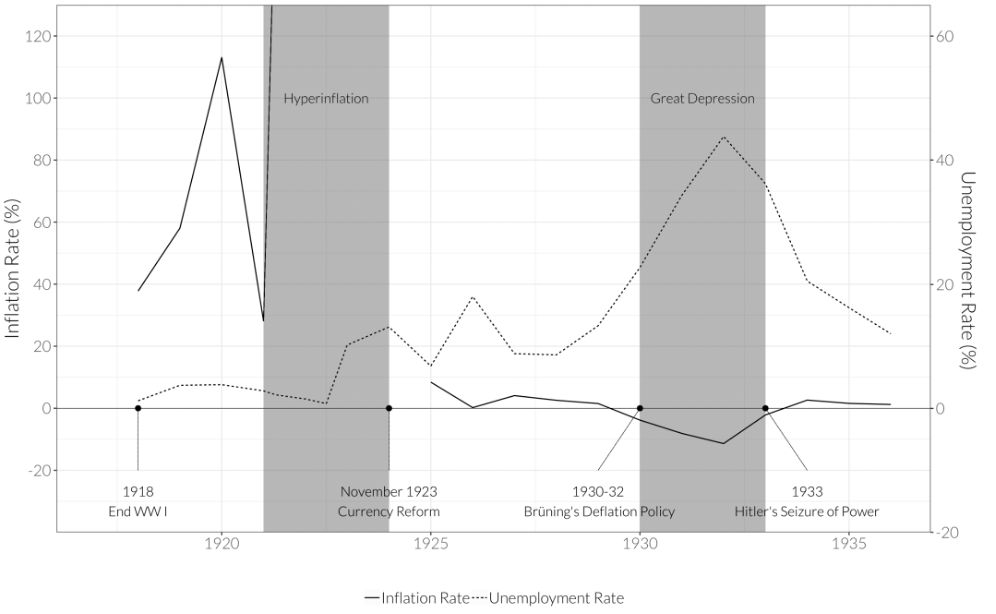NEW PARADIGM
Germany’s confused fear of hyperinflation
Why are Germans so different when it comes to inflation fears? A new study sheds light on German scepticism towards monetary expansion.
BY
DAVID KLÄFFLINGPUBLISHED
20. APRIL 2021READING TIME
2 MINThe fear of inflation is back. For a few weeks now, experts around the world have been warning of possible dangers. And nowhere does the concern seem as great as in Germany – as it almost always is. But why is this the case among Germans? A newly published study by Lukas Haffert, Nils Redeker and Tobias Rommel tries to clarify where the specifically German aversion to inflation might come from. A shorter version of the article in German can be found here.
There is hardly a German discussion about inflation without at least a hint towards the Hyperinflation in the Weimar Republic.
In their survey, the authors show that the collective economic memory of Weimar is distorted, as many Germans do not distinguish between hyperinflation and the Great Depression but conflate Weimar economic history into one big crisis, encompassing both rapidly rising prices and mass unemployment at the same time. As shown in the graph, hyperinflation and the Great Depression were distinct events and inflation, and unemployment were not going hand in hand. On the contrary, unemployment exploded during a time of deflation.

This flawed conception of history has important implications. Based on their account of economic history, many Germans have reason to dismiss the notion that combating inflation and combating unemployment and low growth can be conflicting goals. Interestingly, this misconception is not a phenomenon of lower education, but is especially common amongst highly educated and politically interested Germans. Hence, the group of people leading the public debate and following the ECB’s monetary policy most closely is also the group most likely to remember German history indistinctly.
